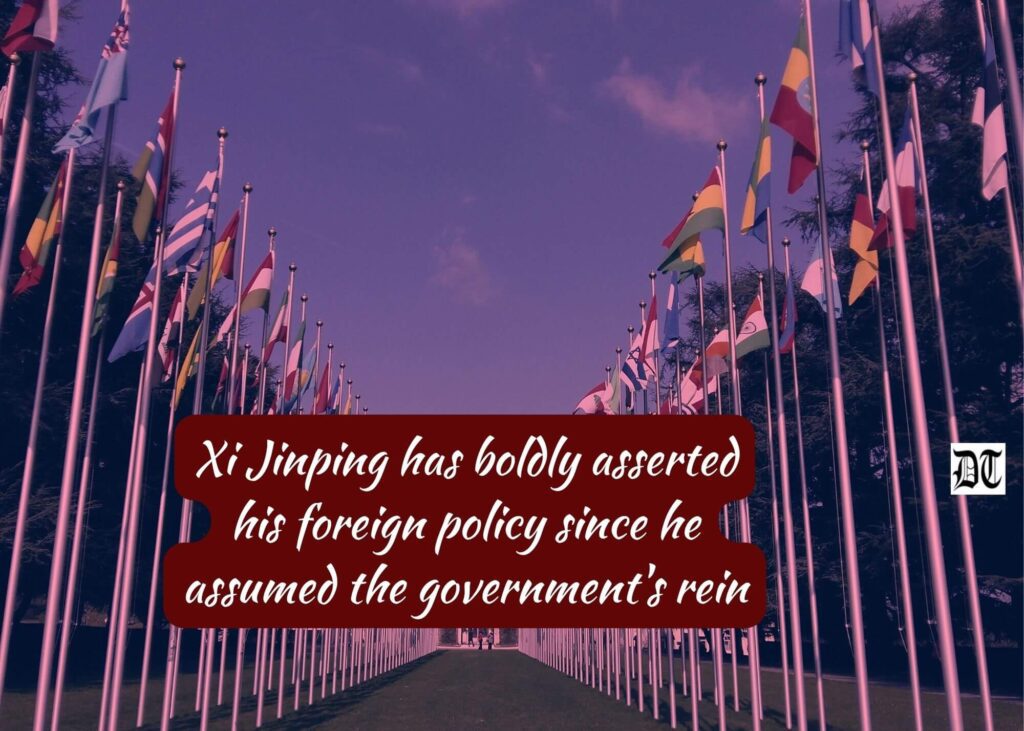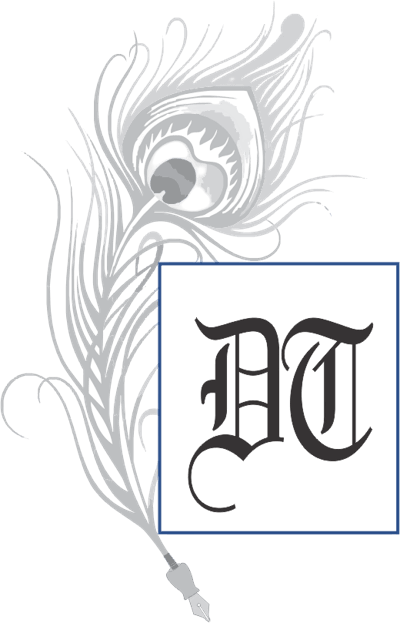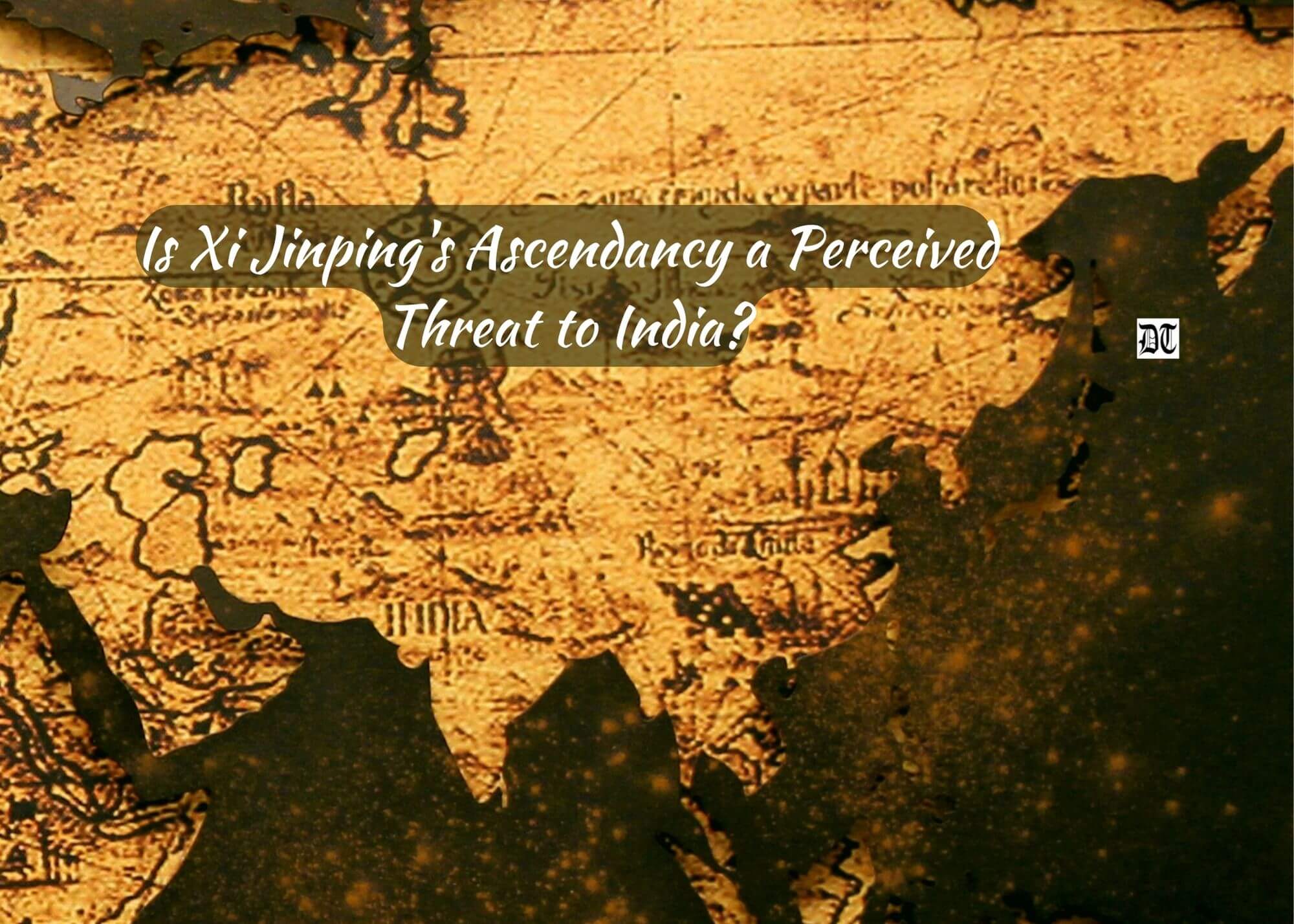Reading Time: 5 minutes
Dr Baljeet traces the ascendency of Xi Jinping to power against the odds. He followed Bismarck’s ‘Blood and Iron Policy’ with expansionist designs. What are India’s challenges and threats? – an exclusive for Different Truths.
Xi Jinping now stands at the helm of affairs in China. The twentieth National Congress of the Communist Party of China, in its meeting held on October 23, 2022, in Beijing, has elected him its general secretary for the record third term in a row. He has also become the President of the People’s Republic of China and Chairman of the Central Commission of the Army simultaneously. He is thus the most influential person in China, whose writ runs at large without challenge from any quarter whatsoever.
Dissent and disloyalty have no place in his scheme of things.
Dissent and disloyalty have no place in his scheme of things. A viral video showed how his rival and predecessor, Hu Jintao, was forcefully removed from the Congress meeting and led the way as evidence of his working style. While inaugurating the meeting, he first paraded his acolytes on the dais, a novel way of asserting his unbridled authority.
But Xi’s rise to the most coveted position in China by Chinese politicians has not been meteoric in any way. He had to go through many hardships and vicissitudes in his career to reach the top. His father, Xi Zhongxun, sometimes held the high position of deputy prime minister in the party. But he was liberal and criticised the party on many counts, costing him his career. He was purged by Mao Zedong, the great Chinese leader well known for the Cultural Revolution (1966-!976), for indulging in anti-party activities.
The whole Xi family thus had to suffer and pay the price. Xi Jinping was sent to the countryside, where he had to work as manual labour for subsistence. But his determination, unflinching courage and commitment to a purpose led him to carve out his way slowly and steadily to the top. His relentless efforts bore fruits when he became a member of the Communist Party in 1974. After that, there was no looking back. Because of his loyalty and devotion to the party, he was selected as governor of the Fujian province and then of Zhejiang. In 2007, he was transferred to Shanghai, where he took stern measures to wipe out corruption. That remarkable achievement brought him laurels, and he was appointed member of the politburo of the party’s standing committee and, subsequently, vice president.
In 2012, Xi Jinping was elevated to the most prestigious post of general secretary of the Communist Party.
In 2012, Xi Jinping was elevated to the most prestigious post of general secretary of the Communist Party. In 2018, when he was re-elected to the post, he amended the constitution and did away with the provision of two terms limit for the president. This paved his way for the third term consecutively. The rest is history.
Now the 20th National Congress has bestowed on him all the powers. His objective is to make China the strongest in every field –economic, political, military, social or cultural – by 2049, when it celebrates its independence century. He has worked consistently to achieve this goal and has elaborately listed his unprecedented achievements in the recently concluded National Congress.

Xi Jinping has boldly asserted his foreign policy since he assumed the government’s reins. He claims China has sovereign rights over the South China Sea, notwithstanding stiff resistance from the international community, particularly the USA and the Western World. He has done away with the ‘One country, two systems’ principle of the constitution and laid his hands on Hong Kong, called the hub of world trade, to integrate it into the mainland. In the same vein, the independence of Taiwan is also rancouring in his mind, and Chinese missiles are positioned to be directed against it at any time.
He seems to have followed the ‘Blood and Iron Policy’ of Bismarck, the architect of German unification. While addressing the budget session in the Prussian Parliament on September 30, 1862, the great German leader said: “Not through speeches and majority decisions are the questions of the day decided, but by Blood and Iron”. Xi Jinping’s actions indicate this aggressive foreign policy based on military strength.
In the Indian context, it can be averred that, given China’s rising power under such an arrogant and aggressive leader like Xi Jinping, Indian vanguard leaders and higher echelons of command will have to brainstorm to strategise to deal with any eventuality in future.
It is no secret that Sino-Indian relations have not been cordial since the 1950s…
It is no secret that Sino-Indian relations have not been cordial since the 1950s when China invaded and occupied Tibet. Its leader, Dalai Lama, fled and took asylum in India. The Chinese then blamed the Indian Government for raising insurgency in Tibet. After that, border skirmishes often took place between the two armies resulting in many causalities. With the clock ticking, the situation on the border became so volatile that it resulted in the 1962 war leading to Indian defeat. The Chinese expelled the Indian forces from the Aksai Chin – 38000 kilometres of area northeast of Jammu and Kashmir, which the Indians claim to be theirs’ as part of Ladakh but is under China’s control. It is a significant border dispute between the two countries.
During Xi Jinping’s second term as president of China in 2017, the Doklam standoff between the people’s Liberation Army of China and the Indian army further strained the relations between the two countries. China was constructing a motorable road from Doklam – near the trijunction (Sikkim, Bhutan, and China) – to the Bhutanese army camp, to which the Bhutan government objected. The Indian government objected as its interests were also at stake as the Chinese could reach the door of the Siliguri Corridor and pose a grave threat. Fortunately, the Doklam crisis was averted, and both armies withdrew, leading to the status quo. It was, undoubtedly, a deliberate attempt by China to intrude into the Indian territory.
China also claims Arunachal Pradesh as its territory and has constructed a village and other infrastructure on its border…
China also claims Arunachal Pradesh as its territory and has constructed a village and other infrastructure on its border under the present regime. More recently, in May 2020, Chinese and Indian armies were again face-to-face at the Galway valley in east Ladakh, where the Chinese had built a vast infrastructure by intruding into the Indian territory. This standoff resulted in the death of twenty Indian soldiers. Disengagement and de-escalation have still been going on between the two armies.
The border problem between the two neighbours remains unresolved, and further attempts by the Chinese army to seize Indian territory cannot be ruled out. Moreover, China’s intent to encircle India from all sides and weaken it seems clear as it has long been investing in various projects in Nepal, Sri Lanka, Bangladesh, and arch-rival Pakistan – all of India’s neighbours, to exercise its influence over these countries.
China is far ahead of India economically, militarily and in other technological advancements. India imports most of its army equipment and weaponry from other countries, while China depends on this count. Bilateral trade between the two rival countries also disproportionately favours China. Most pharmaceutical raw materials, machinery and electronic goods are imported into India from China, while Indian exports to the former comparatively stand nowhere. Thus, under the given backdrop and present circumstances, much strenuous effort is needed to be made by the Indian government to keep the enemy at bay; otherwise, consequences can be disastrous.

Picture design by Anumita Roy

















Very well researched and thoughtful
Take care Baljeet jee.
Excellent write up, Sir. Very logically constructed and informative.
Very well articulated.